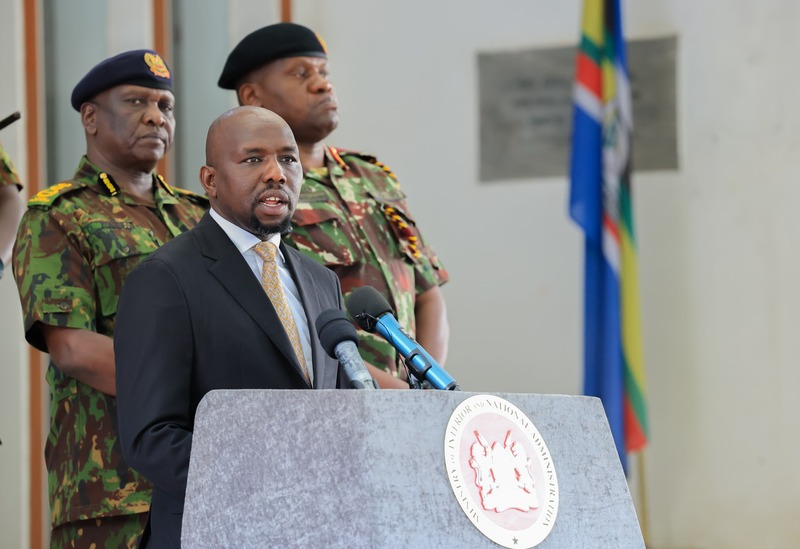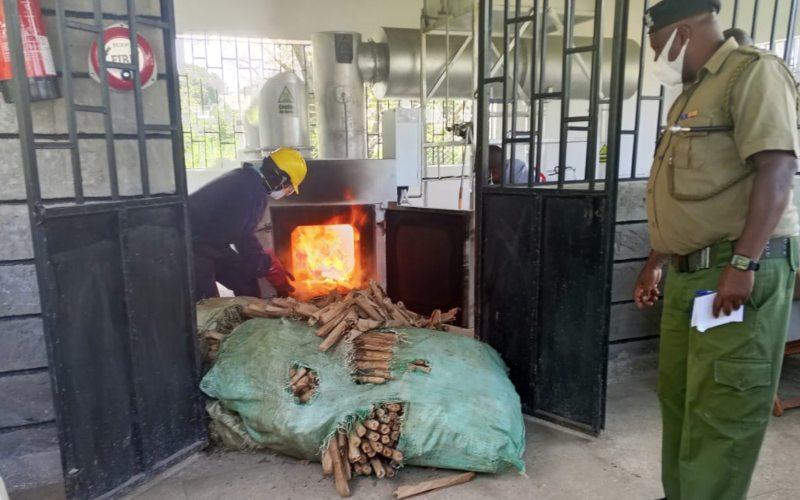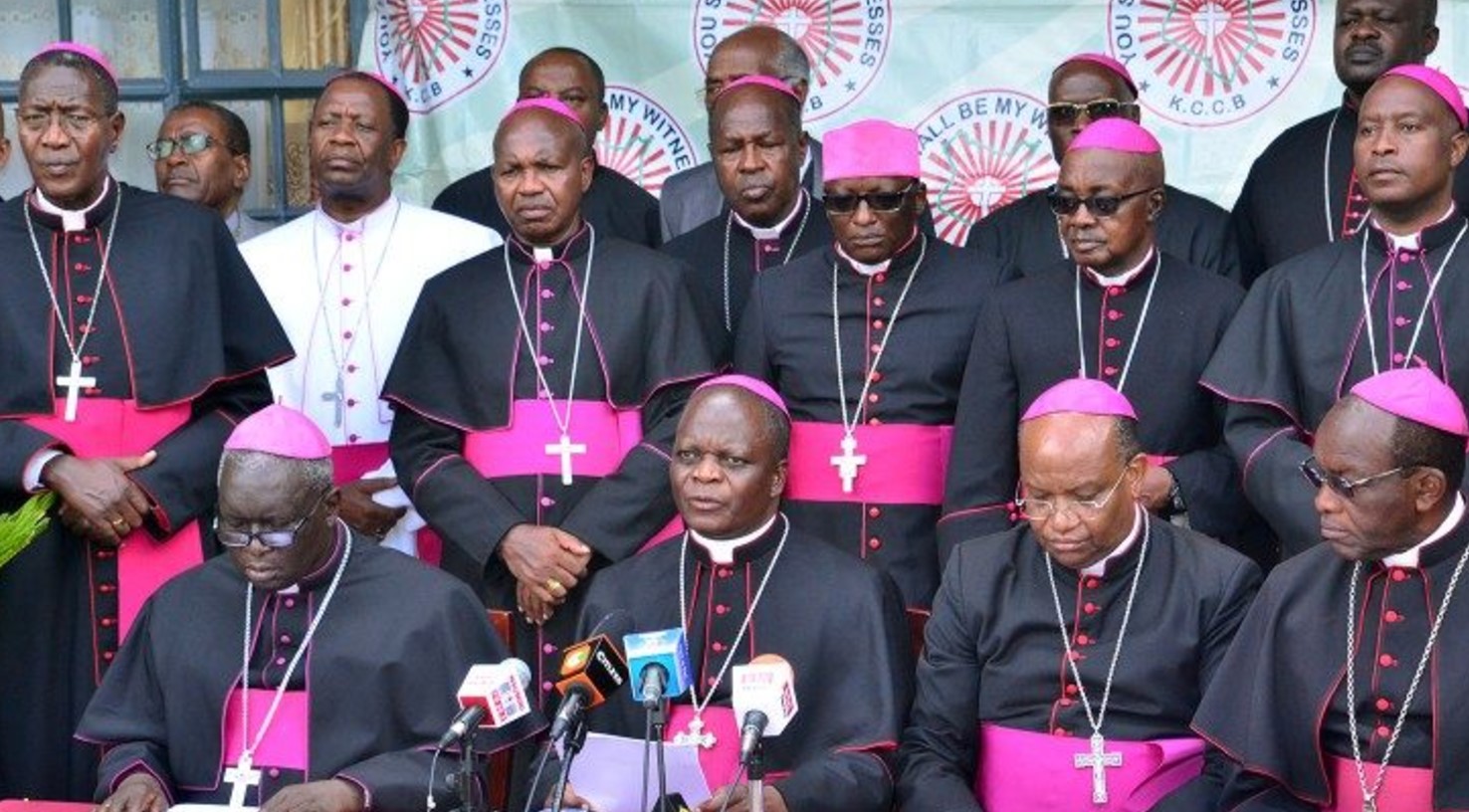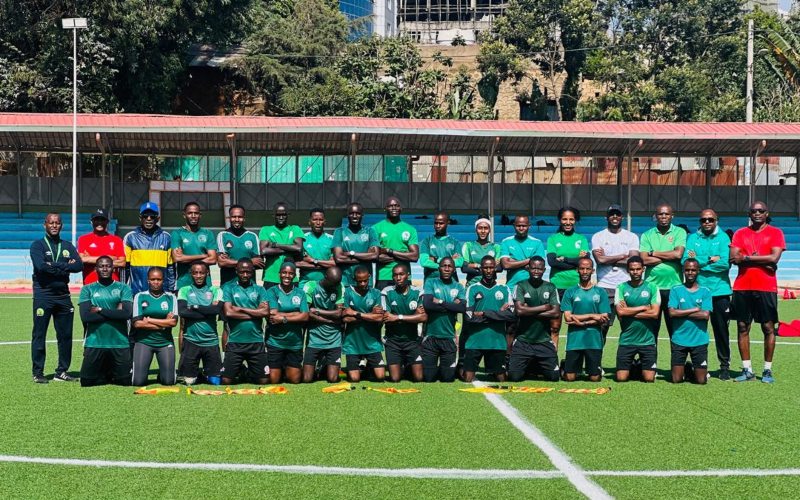EACC flags systemic gaps fueling corruption in Police Service, calls for urgent reforms
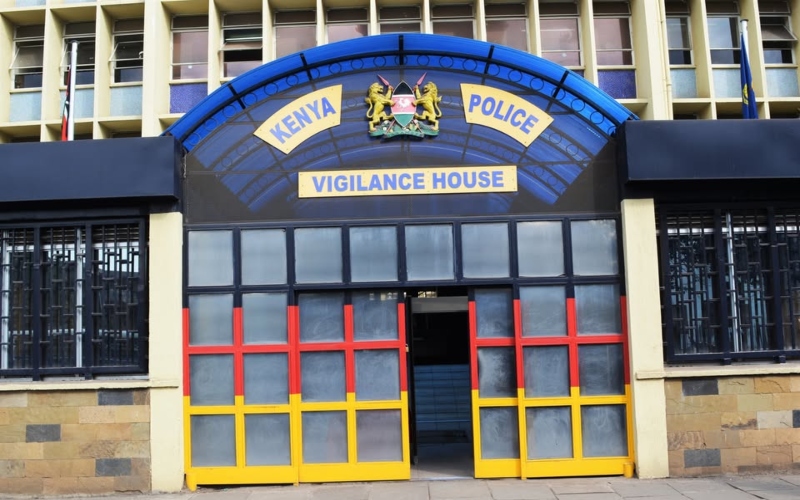
EACC noted that the IAU continues to face a shortage of officers deployed at its regional offices, which makes it difficult to address complaints made against police officers.
The Ethics and Anti-Corruption Commission (EACC) has urged the Inspector General of Police, Douglas Kanja, to ring-fence police officers deployed to the Internal Affairs Unit (IAU to shield them from arbitrary transfers and redeployments.
The recommendation was made as part of the Commission's report titled the "Examination into the Systems, Policies, Procedures, and Practices of Work of the National Police Service (NPS)" which was presented to Kanja on Thursday morning at the National Police Leadership Academy.
The report compiled after an examination conducted by the Commission between February 20, 2025, and June 13 sought to examine, identify and profile areas within the service that make it susceptible to corruption.
More To Read
- Kenya’s public officers must declare assets by end of the year, says EACC
- Police boss Douglas Kanja opposes retirement age cap for IG, deputies
- Over 280 county corruption cases under EACC investigation
- IG Douglas Kanja assures Kenyans of heightened security ahead of festive season
- EACC files suit to recover Sh813 million from Kiambu Governor Kimani Wamatangi and 13 others
- Court steps in after EACC and DPP fail to agree on Obado plea deal
In the report, EACC noted that the IAU continues to face a shortage of officers deployed at its regional offices, which makes it difficult to address complaints made against police officers, leading to impunity and the continuous existence of corrupt practices in the service
"The IG should explore the possibility of direct recruitment or permanent placement of officers in the Unit to enhance institutional stability and continuity; and ensure equitable deployment of officers to the regions, to effectively actualise the decentralisation of IAU services," the Commission urged.
According to EACC, NPS has achieved key milestones towards effective implementation of its mandate over the years, amongst them maintaining safety and security in the country despite immense challenges and a difficult operating environment.
However, the report found that the service had yet to implement various sections of the NPS Act (Cap 84), among them the establishment of a Service Examination Board, the formation of an association for consultation on matters relating to police officers, and regulations for private use of officers.
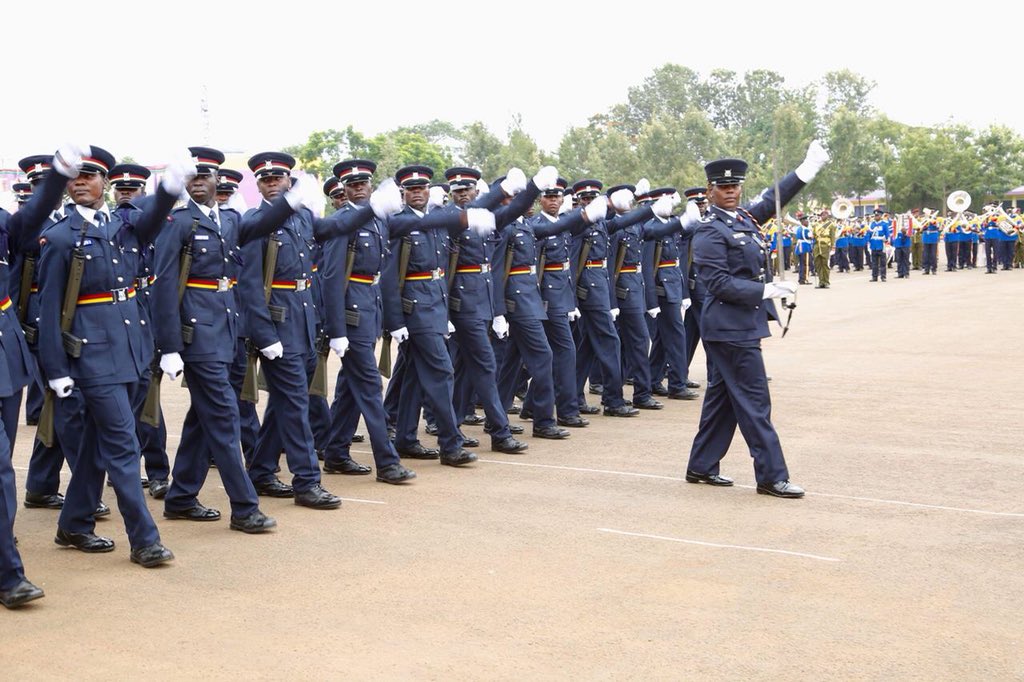 A past Kenya Police Service recruits’ passing out parade at the Kenya Police College, Kiganjo. (Photo: NPS)
A past Kenya Police Service recruits’ passing out parade at the Kenya Police College, Kiganjo. (Photo: NPS)
NPS is also yet to develop guidelines for conducting interviews of victims of crime, prosecution of crime and handling of evidence, Control of traffic, Fleet management, Criminal investigations, Escorts, patrol and general duties, as well as community policing, inspections and sickness, injury and death of a police officer, among others, and lacks an integrated complaints management policy and structure.
These gaps could give room for unchecked discretion, leading to abuse of office and other malpractices.
EACC recommended that the NPS Act be fully implemented and appropriate regulations be established to operationalise governance instruments in all the operational areas and standardise complaints handling within the NPS, among others.
At the same time, the EACC noted that while 24,572 Administration Police Officers were integrated with their Kenya Police General Duty colleagues, a review of the training reports from NPS College in Kiganjo indicated that less than 10 per cent of the APS general duty officers were taken through the standardisation course that formed part of induction into the KPS.
The Commission noted that failure to ensure adequate induction for all the APS officers undermined integration, weakened operational coherence, and increased the risk of non-compliance with work practices, which could lead to internal conflict.
It called for arrangements to be made for proper training and onboarding of all the APS officers who were integrated with the KPS General Duty Police.
Regarding police recruitment, the EACC urged strict adherence to the law and respect for the criteria used to ensure ethnic, regional, and gender balance.
It also recommended that complaint-handling desks be set up at all the recruitment centres and members of the public are informed of the same; and recruitment processes are automated to enhance efficiency and reduce opportunities for corruption.
As for police deployments and transfers, the Commission recommended that they be separated from disciplinary actions, and called on the service to ensure that disciplinary processes follow established legal and administrative procedures.
It also recommended that counselling sessions for officers at the end of the deployment period are undertaken for the purpose of preparing them psychologically for transition back to regular policing duties.
The report further revealed that there was leakage of security uniforms as a result of a lack of restriction on the production of security uniforms, and some deserters disappeared with security uniforms, and that the Kenya Uniform Committee was not operational, leading to unregulated standards in the quality of security uniforms.
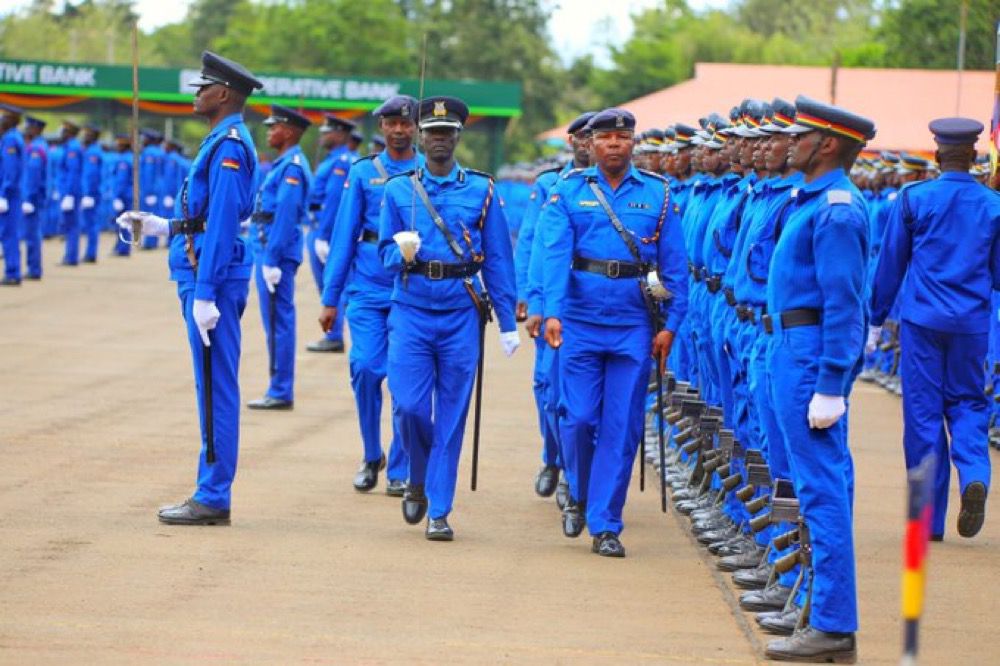 The National Police Service during a passing-out parade. (Photo: File)
The National Police Service during a passing-out parade. (Photo: File)
For instance, different shades of colours provided an opportunity for impersonation. Some equipment, such as helmets, body armour vests, and tear gas canisters, in some sampled regions, was also found to have expired.
"Further, lack of standard criteria for issuing uniforms may lead to bribery, extortion, conflict of interest, and compromised accountability," said EACC.
It is recommended that the service ensure adequate, regular, and transparent supply and distribution of uniforms to officers; ensure standardisation of criteria for issuance and restricted production of uniforms; and restrict officers from wearing uniforms from other security agencies, to minimise the risk of impersonation.
The Commission further found out that failure to allocate motor vehicles to certain police stations and Sub-County Administration Police Units, and to install motor vehicle tracking systems on GoK vehicles, and inadequate fuel allocations to police stations were creating room for extortion, and soliciting of bribery by police officers to respond to incidents.
It recommended that a Fleet Management Board be constituted to provide policy guidance on fleet management; ensure adequate allocation and equitable distribution of motor vehicles to Police Formations, Units, and Stations, and install tracking devices on GoK vehicles, while at the same time, reviewing and rationalising fuel allocation criteria to match vehicle engine capacity and workload.
Traffic police officers were found to be periodically collecting a predetermined fee from boda boda riders and matatu operators, with some stakeholders channelling the amount through their respective Savings and Credit Cooperative Organisations (SACCOs). Those who failed to remit the payments were allegedly subjected to arbitrary arrests and fabricated charges.
To end this, EACC called for, among others, the establishment and operationalisation of an internal intelligence and oversight mechanism to proactively detect, investigate, and discipline officers involved in extortion and abuse of authority.
"This should be supported by a confidential reporting system, routine audits of traffic operations, and collaboration with independent oversight bodies to enhance accountability and deter corruption," the report said.
Top Stories Today




